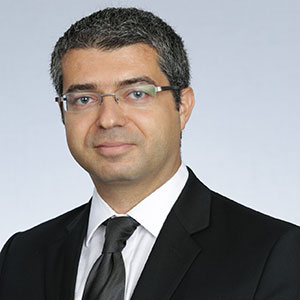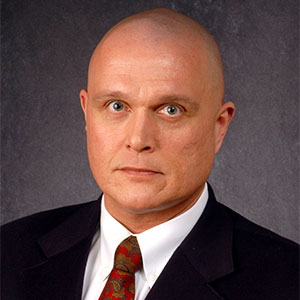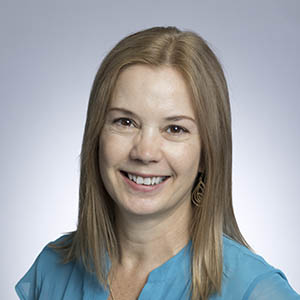Welcome
The Department of Economics offers three undergraduate degree programs.
The BSBA degree in Business Economics is a good choice for students who want to take a sampling of courses from all departments in the College of Business, and then specialize in economics. With this degree, about half the required courses are from economics and half are from other departments in the college. Students who major in Business Economics pursue careers across a wide variety of industries including healthcare, banking, and consulting.
The BS degree in Economics is a good choice for students who want to develop a stronger foundation in economic analysis. The major requires students to take fifteen courses, or 45 credit hours, from the economics department. This leaves plenty of opportunity for students to double major or minor in a related area. Common choices include mathematics, statistics, computer science, political science, and engineering. Students who major in Economics also pursue careers across a wide variety of industries and are most often seeking business analyst positions. The BS degree is also a good choice for students who are interested in law school or a graduate degree in economics or its subfields.
The BSBA degree in Business Analytics is a good choice for students who have strong mathematical and statistical skills, and who are interested in computer programming. As with the BSBA in Business Economics, about half the required courses are from economics and half are from other departments in the college. Students in the Business Analytics major are required to take the more quantitative electives from the economics department, in comparison to students in Business Economics who are free to choose any of our electives.
The Department of Economics also offers two minors and one certificate. Completing a minor or certificate is a strategy that can help differentiate a student from the other students in their major.
Our economics minor requires students to take six courses from the economics department. For College of Business majors, two of the six courses can overlap with their major meaning the minor is only four extra courses.
Our business analytics minor is also six (6) courses. This is a good choice for students in any major who want to develop their quantitative skills by becoming more proficient with Excel, Python and R.
Our business analytics certificate is four (4) courses making it easier to complete than the business analytics minor.
Our faculty conducts internationally recognized applied research on a broad array of issues that span the fields of banking and international macroeconomics, data analytics, environmental and natural resource economics and health economics. They also conduct more basic research on auctions, economic dynamics and information and game theory. Their research has been published in some of the most respected journals in the discipline, recent examples of which include European Economic Review, Games and Economic Behavior, International Economic Review and Oxford Economic Papers. In addition, the department regularly invites prominent economists from around the world to be a part of our active seminar series. Information on local and regional economic issues is available through the UCF Institute for Economic Forecasting.
We invite you to visit us in person to learn more about our students, faculty and programs.
Best Regards,
Mark Dickie, Ph.D.
Chair
BSBA in Business Economics
BS in Economics
BSBA in Business Analytics
Minor in Economics
Minor in Business Analytics
Business Analytics Certificate
Faculty
Faculty Working Papers
Address:
Department of Economics
College of Business
University of Central Florida
P.O. Box 161400
Orlando, Florida 32816-1400
Office: BA2 305
Hours: 8 a.m. to 5 p.m.
(Monday – Friday)
Email: economics@ucf.edu
Mission
Our mission is to provide high quality education to students at all levels by building a solid foundation in economic theory and empirical analysis that can be used to analyze business and public policy problems. Our faculty is nationally and internationally recognized for their contributions to research and teaching.
Upcoming Events
Faculty
-

Sami Alpanda, Ph.D.
Associate Professor, Economics -

Uluc Aysun, Ph.D.
Associate Professor, Economics -

Stacey L. Brook
Lecturer, Economics -

Tarek Buhagiar
Associate Instructor, Economics -

Roberto Burguet, Ph.D.
Professor of Economics -

Michael Caputo, Ph.D.
Professor of Economics -

Mark Dickie, Ph.D.
Chair & Professor of Economics -

Joshua Eubanks
Associate Chair and Instructor, Economics -

Melanie Guldi, Ph.D.
Associate Professor of Economics -

Richard Hofler, Ph.D.
Professor of Economics -

Jordan Izenwasser, Ph.D.
Lecturer -

Dean Jens, Ph.D.
Adjunct Professor of Economics -

Majid Mahzoon
Assistant Professor -

Lealand Morin
Assistant Professor of Economics -

Harry J. Paarsch, Ph.D.
Professor of Business Analytics (Economics) -

Robert Pennington, Ph.D.
Professor Emeritus of Economics -

Javier Pereira
Adjunct Professor -

Eric Schmidbauer, Ph.D.
Associate Professor of Economics -

David Scrogin, Ph.D.
Associate Professor of Economics -

John Solow
Kenneth White and James Xander Professor in Economics -

Michael C. Tseng
Assistant Professor of Economics -

Nora Underwood-Caputo, Ph.D.
Senior Lecturer of Economics -

Kenneth White, Ph.D.
Professor Emeritus of Economics
